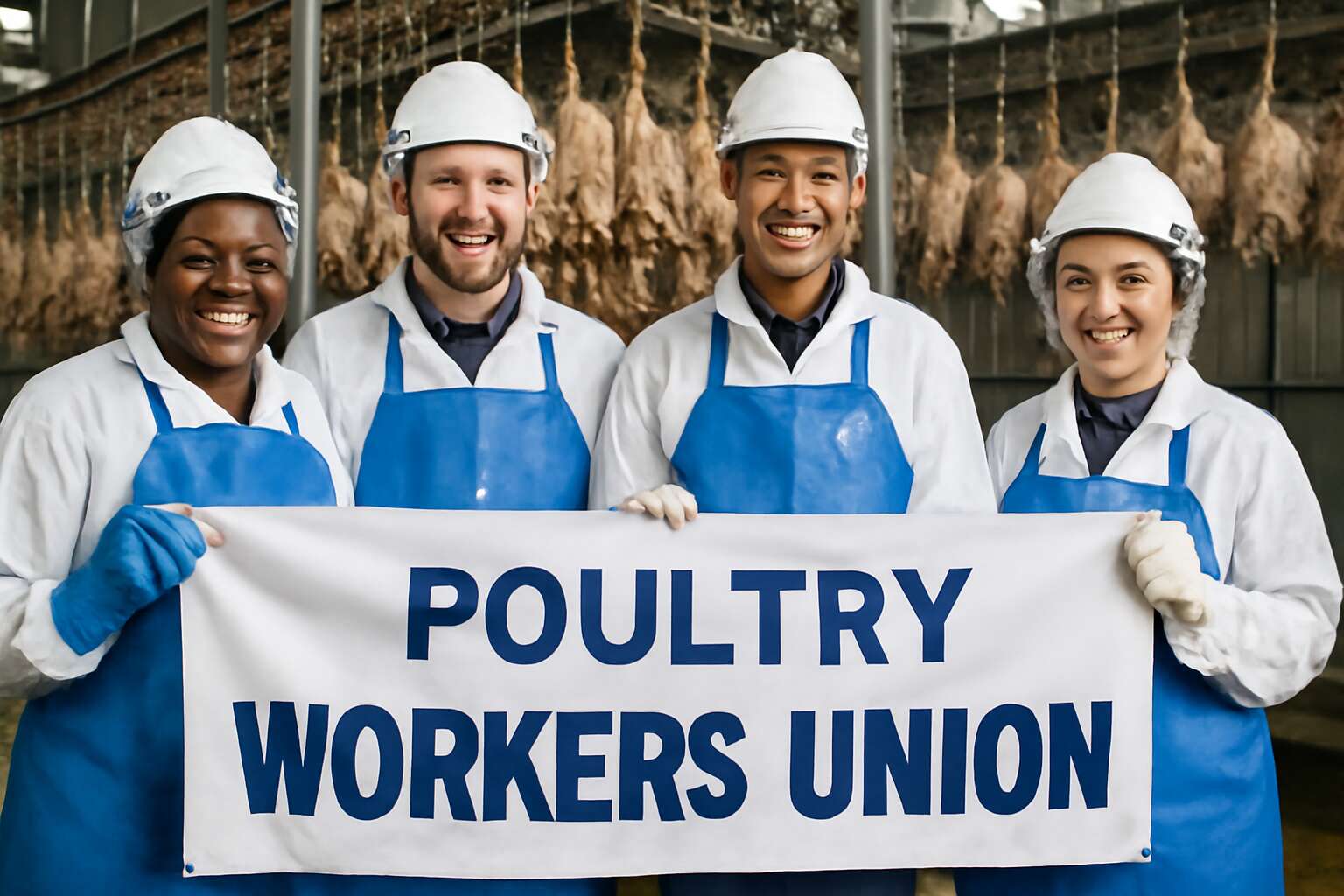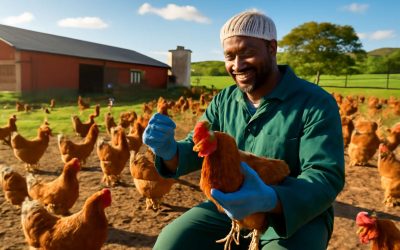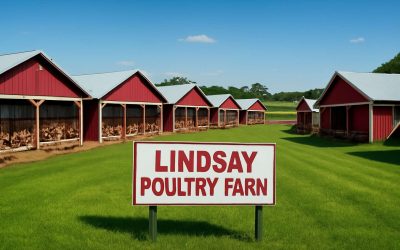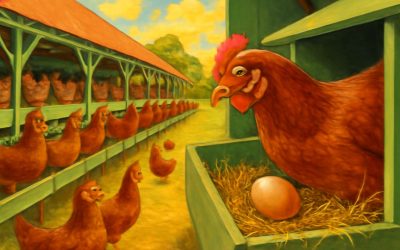Understanding Poultry Workers Unions
Definition and Purpose – What is a poultry workers union and why do they exist?
In the bustling heart of South Africa’s poultry industry, a quiet revolution is underway—one driven by the unwavering spirit of poultry workers union. These unions are more than just banners or meetings; they are the voice of countless laborers whose daily toil sustains the nation’s table. A poultry workers union exists to champion fair wages, safe working conditions, and the dignity every worker deserves amidst the clucking chaos of the poultry farms.
At their core, poultry workers unions serve as the collective heartbeat of those who often labor behind the scenes, ensuring their concerns are heard and their rights protected. They act as a shield against exploitation and a beacon of solidarity. For many, the union is a lifeline—an anchor in the turbulent waters of industrial work—fostering a sense of community and shared purpose. Whether advocating for better health policies or negotiating terms, the poultry workers union embodies the resilience and hope woven into the fabric of South Africa’s poultry industry.
History and Evolution – Origins and development of poultry workers unions over time
Understanding the history and evolution of poultry workers unions in South Africa reveals a story rooted in resilience and collective struggle. These unions did not emerge overnight; instead, they are the result of decades of advocacy and perseverance by laborers seeking fair treatment amid challenging conditions. Initially, poultry workers faced exploitative practices, often working long hours for minimal pay, with little regard for safety or dignity.
Over time, grassroots efforts and solidarity movements began to coalesce, giving rise to formal poultry workers unions. These unions evolved from informal associations into powerful entities capable of negotiating better wages and safer working environments. Their development was marked by pivotal moments, such as strikes and negotiations, which pushed industry standards forward. Today, poultry workers unions continue to adapt, harnessing new strategies to protect their members and ensure their voices are heard in a rapidly changing industry.
Key Roles and Responsibilities – How these unions advocate for workers’ rights
At the heart of every thriving poultry industry in South Africa lies a powerful force: the poultry workers union. These unions serve as the backbone for advocating workers’ rights, ensuring fair wages, and promoting safe working conditions. Their key responsibilities go beyond mere negotiations; they are guardians of dignity in an industry often marred by exploitative practices.
One of the primary roles of a poultry workers union is to represent its members during collective bargaining sessions. This entails fighting for better pay, reasonable working hours, and improved safety standards. These unions also act as a vital communication bridge, relaying workers’ grievances directly to industry stakeholders and government bodies.
Moreover, poultry workers unions often engage in training programs to empower members with knowledge about their legal rights and safety protocols. They organize campaigns and strikes when necessary, demonstrating resilience and unity. In a rapidly evolving industry, the poultry workers union remains a crucial advocate for fairness, ensuring workers are not left behind amidst technological advancements and market pressures.
Benefits of Joining a Poultry Workers Union
Worker Protections – Enhanced job security, safety standards, and legal support
Joining a poultry workers union isn’t just about collective bargaining; it’s a shield that offers tangible protections in an industry often marred by unpredictable risks. For poultry workers in South Africa, union membership translates into enhanced job security, ensuring that layoffs or unfair dismissals are challenged effectively. The union acts as a formidable advocate, fighting for safer working conditions and adherence to rigorous safety standards that safeguard workers from hazards like machinery accidents or exposure to harmful substances.
Legal support is another pillar of union benefits. Poultry workers union members gain access to expert legal counsel, vital in disputes over wages or workplace rights. This support isn’t just reactive but proactive—training sessions and resources help workers understand their rights and navigate complex labor laws confidently. In a world where poultry workers face daily challenges, union membership stands as a beacon of security, stability, and justice, making it an essential step for those committed to protecting their livelihood and dignity in the poultry industry.
Wages and Benefits – Negotiation power for better pay, healthcare, and retirement plans
Within the bustling corridors of South Africa’s poultry industry, the power of collective voice cannot be overstated. When poultry workers unite through a dedicated poultry workers union, they unlock unparalleled negotiation leverage—transforming their individual voices into a formidable chorus demanding fair wages and comprehensive benefits. This collective strength ensures that workers aren’t merely cogs in the machine but valued contributors earning their rightful rewards.
Joining a poultry workers union opens doors to improved wages and benefits that reflect the true worth of hardworking individuals. Negotiation processes led by the union can secure better healthcare plans, ensuring workers and their families are protected from unforeseen medical expenses. Retirement plans also become a priority, offering long-term security that extends beyond the factory floor.
In fact, many unions use a strategic approach to amplify their bargaining power, often presenting a united front that commands respect from industry leaders. For example, some poultry workers unions advocate for structured wage increases and enhanced safety allowances, ultimately elevating the standard of living for members while fostering dignity and stability in the workplace.
Workplace Conditions – Improvements in safety, hygiene, and working hours
Imagine a workplace where safety isn’t just a buzzword but a tangible reality—sounds like a dream, right? Thanks to the power of a poultry workers union, that dream becomes more of a reality than you might think. When poultry workers unite, they gain a formidable voice advocating for improved workplace conditions, ensuring safety protocols are not just written on a poster but actively enforced.
Joining a poultry workers union often results in significant upgrades to hygiene standards, making the factory floor a cleaner, healthier environment for everyone. More importantly, working hours tend to become more reasonable, reducing the risk of burnout and keeping workers fresh and alert—because nobody wants a poultry worker nodding off mid-shift!
For added peace of mind, many unions push for safety enhancements such as protective gear and injury prevention programs. Sometimes, they even push for a structured safety allowance to reward those who prioritize their well-being. The collective effort of a poultry workers union ensures that workers aren’t just pawns in an industrial game but active participants in shaping a safer, fairer workplace.
- Improved safety standards
- Enhanced hygiene protocols
- Reasonable working hours
Challenges Facing Poultry Workers Unions
Legal and Bureaucratic Hurdles – Regulatory barriers and union restrictions
Behind the scenes of poultry workers union efforts, a complex web of legal and bureaucratic hurdles often stands in the way of meaningful change. These unions face relentless regulatory barriers designed to control union activities and limit their influence, making it difficult to organize and advocate effectively. In South Africa, for instance, legislation such as the Labour Relations Act imposes strict restrictions on union rights, creating an environment where progress can feel like an uphill battle.
Moreover, union restrictions often manifest in bureaucratic red tape that delays negotiations and hampers swift action on workers’ behalf. This maze of legal protocols can dishearten even the most determined poultry workers union representatives. Navigating these challenges requires resilience and strategic ingenuity, as they seek to ensure that their members’ voices are heard amidst a landscape heavily tilted in favor of corporate interests.
Employer Opposition – Pushback from poultry industry companies
In the shadowy corridors of industrial poultry farming, the poultry workers union often finds itself locked in a relentless struggle against formidable opposition. The poultry industry, with its sprawling factories and tightly controlled supply chains, views union efforts as threats to their efficiency and profits. This fierce pushback manifests through a variety of tactics that aim to stifle union influence and maintain the status quo.
Employers frequently employ tactics such as intimidation, misinformation campaigns, and strategic legal challenges to weaken the resolve of poultry workers union organizers. The industry’s formidable presence often means that union efforts are met with resistance at every turn, making advocacy a daunting endeavor. Sometimes, companies even embed anti-union clauses into employment contracts, creating an almost insurmountable barrier for workers seeking collective bargaining rights.
Particularly in South Africa, where the poultry industry is a vital economic pillar, the opposition can feel overwhelming. Yet, the resilience of poultry workers union members endures. Their fight is a testament to the unyielding pursuit of fair wages, safe working conditions, and dignity within the industry. Despite the pushback, union advocates continue to push boundaries, fighting for a future where workers’ rights are no longer an afterthought but a cornerstone of industry reform.
Membership Engagement – Recruitment and retention challenges
In the shadowed corridors of South Africa’s poultry industry, the fight for worker solidarity is a relentless dance—a battle waged against formidable resistance. Yet, amidst the tumult, poultry workers union faces an uphill climb in engaging members, their voices often drowned in the din of industry opposition. Recruitment efforts struggle against ingrained fears, mistrust, and the oppressive tactics employed by big poultry corporations.
Retention, too, remains an elusive goal. Many workers, entangled in the web of job insecurity and ongoing intimidation, hesitate to commit fully to union membership. To bridge this divide, unions must foster an environment of trust and empowerment. Sometimes, this involves addressing logistical barriers or offering tangible benefits that resonate deeply with workers’ everyday struggles. The challenge lies not only in attracting new members but in nurturing a sense of collective purpose—an enduring flame that refuses to be snuffed out by industry pushback.
How Poultry Workers Unions Operate
Union Formation Process – Steps involved in establishing a poultry workers union
Establishing a poultry workers union involves a carefully structured process that empowers employees to stand together for their rights. It begins with interested workers voicing their desire to form a union, often through confidential discussions to gauge support. Once enough backing is confirmed, the next step involves filing a petition with the relevant labor authorities, signaling the intent to organize. This is crucial in ensuring the process adheres to legal standards and protections.
Following the petition, a union election is typically held, where workers vote to approve or reject union representation. During this phase, union organizers and workers work diligently to address concerns and clarify the benefits of forming a poultry workers union. If a majority votes in favor, the labor board officially certifies the union, granting it legal recognition to negotiate on behalf of workers. This process underscores the importance of collective voice—turning individual grievances into a united front for meaningful change.
Collective Bargaining – Negotiating contracts on behalf of members
When poultry workers union steps into the negotiation arena, it transforms individual voices into a formidable chorus of collective strength. These unions operate through a strategic process of bargaining, where representatives advocate fiercely for fair contracts that benefit their members. They work tirelessly to secure better wages, safer working conditions, and comprehensive benefits tailored to the needs of poultry workers across South Africa.
During collective bargaining, union leaders and members engage in detailed discussions with employers, aiming to reach mutually beneficial agreements. This process often involves a series of proposals, counter-proposals, and negotiations designed to address key issues such as job security and workplace safety. The goal is to ensure poultry workers union members enjoy fair treatment and improved standards of living.
To streamline negotiations, many poultry workers unions utilize structured approaches such as:
- Assessing industry benchmarks
- Gathering member feedback
- Prioritizing core demands
This meticulous preparation allows unions to negotiate with confidence and clarity, ensuring that the voices of poultry workers are heard loud and clear. By doing so, poultry workers union members are empowered to shape their work environment, fostering a culture of respect, safety, and fairness that influences the entire poultry industry landscape.
Dispute Resolution – Methods for resolving conflicts between workers and employers
Dispute resolution within the realm of poultry workers unions is an intricate dance, a delicate art of restoring harmony when conflicts threaten to rupture the fabric of workplace unity. These unions employ a variety of methods to bridge the chasm between workers and employers, ensuring that grievances are addressed with fairness and transparency. One of the most common approaches involves structured negotiation sessions where both parties voice their concerns and seek common ground.
When disagreements escalate, poultry workers unions often turn to formal mechanisms such as grievance procedures, mediation, or arbitration. These processes serve as the crucible where disputes are softened and reshaped into mutually acceptable solutions. For instance, union representatives may utilize a step-by-step grievance process: filing complaints, engaging in mediation, and, if necessary, progressing to binding arbitration. This method ensures that issues like unfair treatment or unsafe working conditions are resolved swiftly and justly.
In addition to procedural avenues, poultry workers unions may also facilitate peer-led workshops or employ internal conflict resolution committees. These bodies act as impartial arbiters, fostering dialogue and understanding. By weaving these methods into their operational fabric, poultry workers unions cultivate a culture where conflicts become catalysts for positive change rather than sources of division. Ultimately, this resilient approach to dispute resolution sustains the vital link between poultry workers and the industry they serve, reinforcing their collective strength and voice.
Recent Trends and Developments in Poultry Workers Unions
Legal Protections and Reforms – New laws impacting union activities
In recent years, seismic shifts have rippled through the landscape of poultry workers unions, driven by groundbreaking legal protections and reforms. Legislators across South Africa have recognized the vital role these unions play, enacting laws that bolster workers’ rights and diminish the formidable barriers previously erected by industry giants. These new laws serve as a clarion call for justice, ensuring poultry workers union members can organize without fear of retribution and engage in collective bargaining with renewed vigor.
Among the most transformative developments are regulations that enhance workplace safety standards and secure employment stability. In a landscape where poultry industry employers once wielded near-absolute control, recent reforms have introduced safeguards such as mandatory safety protocols and clearer pathways for union recognition. These measures not only empower poultry workers union members but also foster a more equitable environment, where dignity and fair treatment are no longer ideals but realities.
- Legal protections against unfair dismissal
- Streamlined union registration processes
- Stronger enforcement of safety and health regulations
As the legal terrain evolves, so too does the resilience of poultry workers unions. These reforms symbolize a shift from oppression to empowerment, illuminating a future where the voice of every poultry worker echoes louder, protected by law and motivated by the unyielding pursuit of justice in the poultry industry. The battle for fair working conditions continues, but now, with the law standing firmly on their side, poultry workers union members march forward with renewed hope and strength.
Union Membership Trends – Growth or decline in unionization rates
Recent trends in poultry workers union membership reveal a complex tapestry woven with resilience and challenge. While some regions have experienced modest growth, the overall landscape remains unpredictable, shaped by shifting legal frameworks and industry opposition. In South Africa, there’s a palpable undercurrent of renewed energy among poultry workers seeking to reclaim their rights. This surge is driven by legal reforms that make unionization more accessible and less perilous.
Despite the progress, many poultry workers union face persistent hurdles such as employer pushback and bureaucratic barriers. Yet, the passion for collective action persists, fueled by the conviction that dignity and fair treatment are non-negotiable. Interestingly, the growth in union membership often correlates with increased awareness campaigns and legal protections that empower workers to stand firm. As the poultry industry evolves, so does the determination of poultry workers union members to carve out a more just and equitable future.
Impact of Industry Changes – Effects of automation and supply chain shifts
The poultry industry is no stranger to seismic shifts, and recent industry changes have cast a long shadow on poultry workers unions. Automation, in particular, has transformed assembly lines from bustling hubs of human effort to sleek, mechanized processes. While this technological leap promises efficiency, it often leaves poultry workers feeling like relics of a bygone era, struggling to find their footing amid the machinery.
Supply chain shifts further complicate matters, reshuffling the landscape of poultry production and employment. As large corporations streamline operations across borders, poultry workers unions find themselves navigating a labyrinth of legal and bureaucratic hurdles. Yet, amidst these upheavals, a resilient undercurrent persists—workers still rally for their rights, recognizing that collective action remains their strongest shield.
Some poultry workers unions have responded by embracing innovative strategies, such as digital campaigns and international solidarity efforts. These developments reflect a broader trend: unions are no longer solely reactive but increasingly proactive in shaping industry standards. As automation and supply chain dynamics continue to evolve, so too does the unwavering determination of poultry workers unions to safeguard dignity and fairness in every corner of the industry.
How to Support or Join a Poultry Workers Union
Membership Criteria and Process – How poultry workers can become union members
Joining a poultry workers union can be a transformative step toward securing fair treatment and better working conditions. For poultry industry employees in South Africa, understanding the membership criteria and process is crucial. Typically, eligibility hinges on being employed directly within poultry farms or processing plants, with some unions requiring a minimum period of service. The process often begins with expressing interest—either through informal conversations or attending union meetings—and then completing an application form.
Most poultry workers unions encourage active engagement, ensuring members’ voices are heard during negotiations. To become a member, workers usually need to meet specific criteria, such as employment status and a willingness to participate in union activities. Once accepted, members gain access to collective bargaining power, legal protections, and advocacy efforts aimed at improving wages, workplace safety, and job security.
Joining a poultry workers union not only amplifies individual voices but also fosters solidarity within the industry. If you’re considering membership, look for unions that prioritize transparent processes and inclusive membership policies—because united, poultry workers can truly drive change!
Supporting Union Initiatives – Ways for allies and advocates to assist
Supporting poultry workers union initiatives offers a powerful way for allies and advocates to champion fair labor practices in South Africa’s poultry industry. By actively promoting union efforts, individuals can help amplify the voices of workers striving for better wages, safer workplaces, and job security.
One meaningful way to support a poultry workers union is through community engagement and awareness campaigns. Sharing information about the importance of unionization can foster solidarity and encourage more workers to consider union membership. Additionally, participating in or organizing public forums and educational workshops can dispel misconceptions and highlight the vital role unions play in advocating for workers’ rights.
For those seeking to support union initiatives practically, consider volunteering time or resources to union-led projects or legal assistance programs. Your involvement can help dismantle bureaucratic hurdles that hinder union growth and ensure that poultry workers’ rights are protected at every level. Ultimately, solidarity strengthens the collective power of poultry workers union, transforming individual struggles into a shared movement for justice and dignity.
Resources and Contacts – Where to find more information and assistance
Finding reliable resources and contacts for supporting or joining a poultry workers union can be a game-changer for those advocating for fair labor practices. For individuals eager to get involved, accessing accurate information is essential. Fortunately, many poultry workers unions maintain comprehensive online platforms and community offices where prospective members and allies can seek guidance.
To streamline your search, consider exploring these avenues:
- Official poultry workers union websites with detailed membership and contact information
- Local labor rights organizations that collaborate with poultry industry unions
- Legal aid clinics specializing in employment rights and union support
- Industry-specific forums and social media groups sharing updates and resources
Additionally, reaching out directly to union representatives can provide clarity on membership criteria and upcoming campaigns. Many unions also host educational workshops and community events—perfect opportunities to learn more and connect directly with union officials. Whether you’re a worker seeking to join or an advocate ready to lend support, these resources form the backbone of a stronger, more united poultry workers union movement in South Africa.




0 Comments